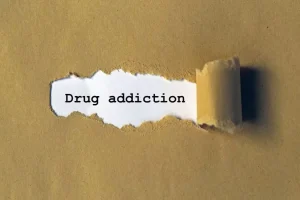
But learning the rules of each of those worlds has some surprising commonalities. Ultimatums are not only alienating, they are no match for drug craving, an immediate, powerful force to continue use. Most often they are heard as hollow threats spoken in momentary anger, an expression of frustration. Social drinking can easily slide into problem drinking without fanfare, but there are signs that should raise red flags. Obviously, frequently appearing intoxicated should set off alarms.
Recovery times

Another important tool is education about treatment possibilities. Advocating on behalf of people struggling with addiction is brave. Rather than staying silent and fuming, families that speak up are doing something to make things better. Those conversations could not only have a wonderful impact on a family’s spirits but also positively impact their communities. If your loved one displays the symptoms of a substance use disorder, your relationship is likely affected by their substance misuse in multiple ways, including emotionally, physically, and financially.

Intervention: Help a loved one overcome addiction
Forcing someone to admit to a problem is not the wisest way to encourage someone to stop using the problematic substance or behavior. Instead, the goal is to quietly remove the many psychological barriers that keep a person from taking steps to overcome addiction. It is difficult for those addicted to see beyond the craving and momentary pleasures, to envision functioning without their drug, yet important for their future to have a powerful positive incentive to do so. Lectures and confrontational techniques are usually ineffective and often damage relationships that could be levers of change. What’s needed is an approach that is more collaborative than confrontational—reaching toward a goal everyone can be happy with. Remember the times you’ve helped the addict or alcoholic in your life.
Too much pleasure can lead to addiction. How to break the cycle and find balance
A family meal allows everyone to reconnect at the end of a day that may have been stressful, lonely or upsetting. Each meal helps build upon the work done in family therapy, and the ritual of eating together can promote a sense of common ground and togetherness. There are many online resources that can help families learn about addiction. Most bookstores also offer a wide selection of books about the chemistry of addiction and the science behind addiction treatment.
At the same time, this can make it more difficult for you to focus on your mental health. You might deal with frustration, stress, anger, or burnout as you attempt to instill change in your loved one. Setting boundaries can be complex, but sometimes tough love is the only way to maintain a relationship with someone with an addiction. The feelings of grief and distress color the feelings you have for that person.
Frequently Asked Questions Regarding Loved Ones with Substance Use Disorders
The immediacy and consistency of positive rewards for any movement in a healthy direction has been shown to shape behavior in addictive individuals that can increase the odds of recovery. The pathway to healing and recovery is often a journey that can progress over multiple years. Addiction not only involves the individual suffering from the substance use disorder, but their loving an addict partner, their family, and their friends as well. For instance, spending time away from someone with an addiction can give you the necessary time to reflect on your life, partake in your favorite hobbies and care for your health. It can be emotionally taxing to love someone with addiction, but there are ways to care for yourself and them without enabling their behavior.

- As research points out, addiction in a close relative can serve as a stressful life situation that persists for years, and that long-term dysfunction can make it hard for families to communicate clearly.
- Several communication strategies can help you show support and compassion in a healthy, effective way.
- New research shows that many soon also used tobacco cigarettes and marijuana.
An important first step in helping your partner is understanding their substance use. Educate yourself on substance use disorders and available resources. By doing this, you are not only empowering yourself to make well-informed decisions, but you are also ready and equipped with information when your partner decides they are ready to seek help. Various biopsychosocial approaches have demonstrated their effectiveness in the treatment of addiction. These include, but are not limited to, cognitive behavioral therapy, dialectical behavioral therapy, relapse prevention training, motivational interviewing and enhancement, contingency management, and medication.
- Instead, do your best as their friend or loved one to show that you support them and their recovery.
- Moreover, all these treatments are far less judgmental (which would likely trigger the patient’s resistance) than they are understanding, empathic, and compassionate.
- The information we provide is not intended to be a substitute for professional medical advice, diagnosis or treatment.
- You don’t want to make them feel like you’re checking up on them or assuming the worst about their condition.
- An addiction professional helps figure out the scope of the issue and what treatment options would be right.
There are many reasons why you may feel it’s necessary to detach from someone with substance use disorder. Identifying your reasons can help you to move through the process in a thoughtful way. Substance use disorder may sometimes impact a person to the point of risking their job or housing. It may feel impossible to refuse to help a loved one in this situation.
“It’s really an ingenious method to make sure that no matter what we do, that’s pleasurable. It doesn’t last very long and it’s followed by pain so that immediately we’re searching again,” she explains. By identifying behaviors and patterns that aren’t serving you, and taking steps to detach from them, you’re filling your own cup. Letting go of the need to be their savior may involve a grieving process, and it may be a good idea to seek support. If you decide to call an emergency number like 911, ask the operator to send someone trained in mental health, like Crisis Intervention Training (CIT) officers.
Set Boundaries
It can’t be stressed enough that being saddled with an addiction doesn’t represent a moral failing or character flaw—or, once it advances, a free choice. Nancy Reagan’s famously glib advice to “just say no” to addiction may sound sensible, but it’s backed neither by science nor individual experience. At this deeper organic level, dopamine is regularly cited as the chief culprit behind addictive tendencies. Beyond any particular addiction, dopamine is the chemical that drives most behavior. It’s not simply that it advances what’s vital to our survival—like eating, sleeping, and sexual expression—but that, less auspiciously, its inherent pleasure-inducing elements promote addiction and dependency.
